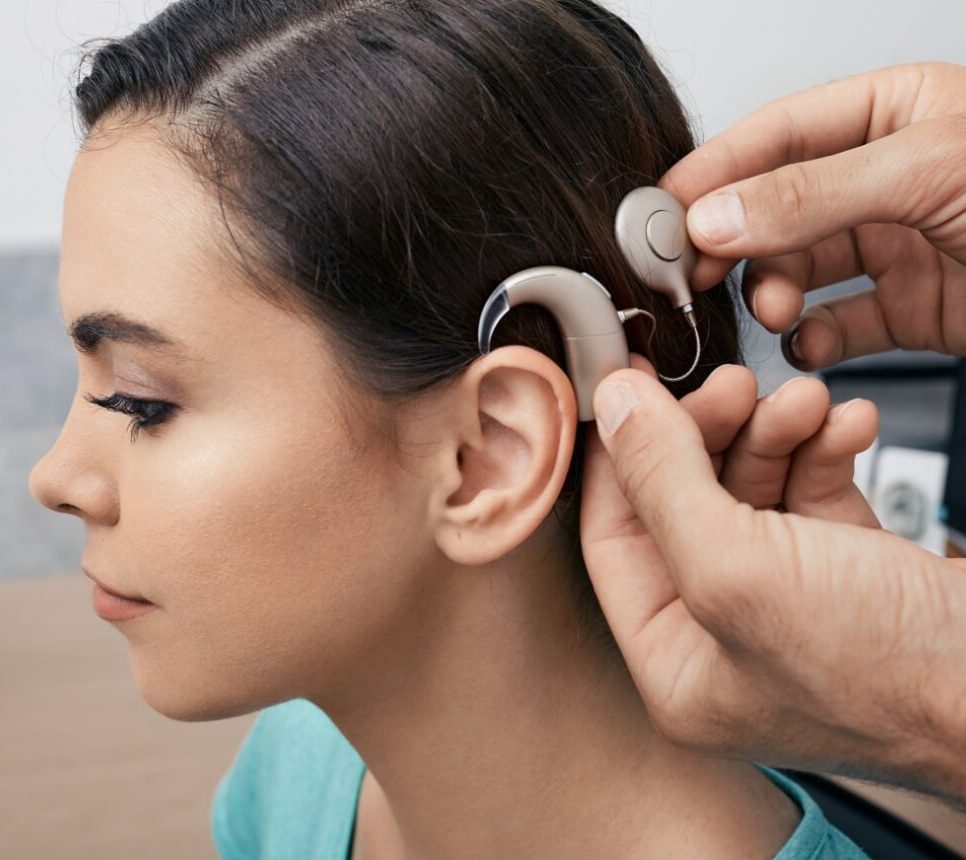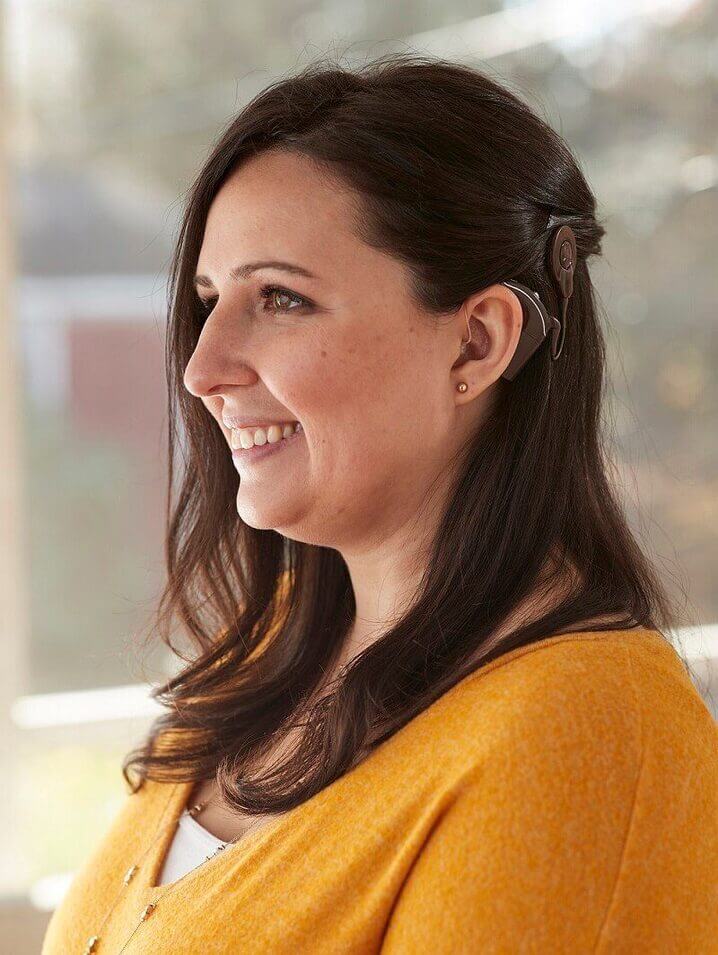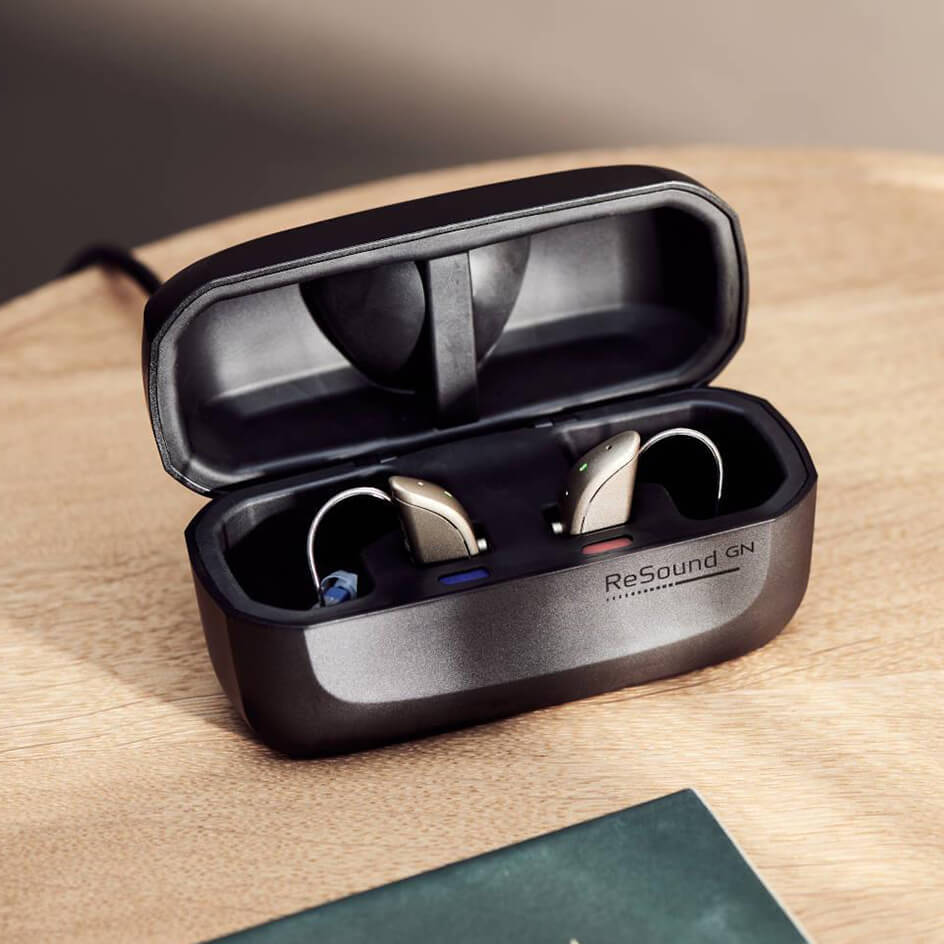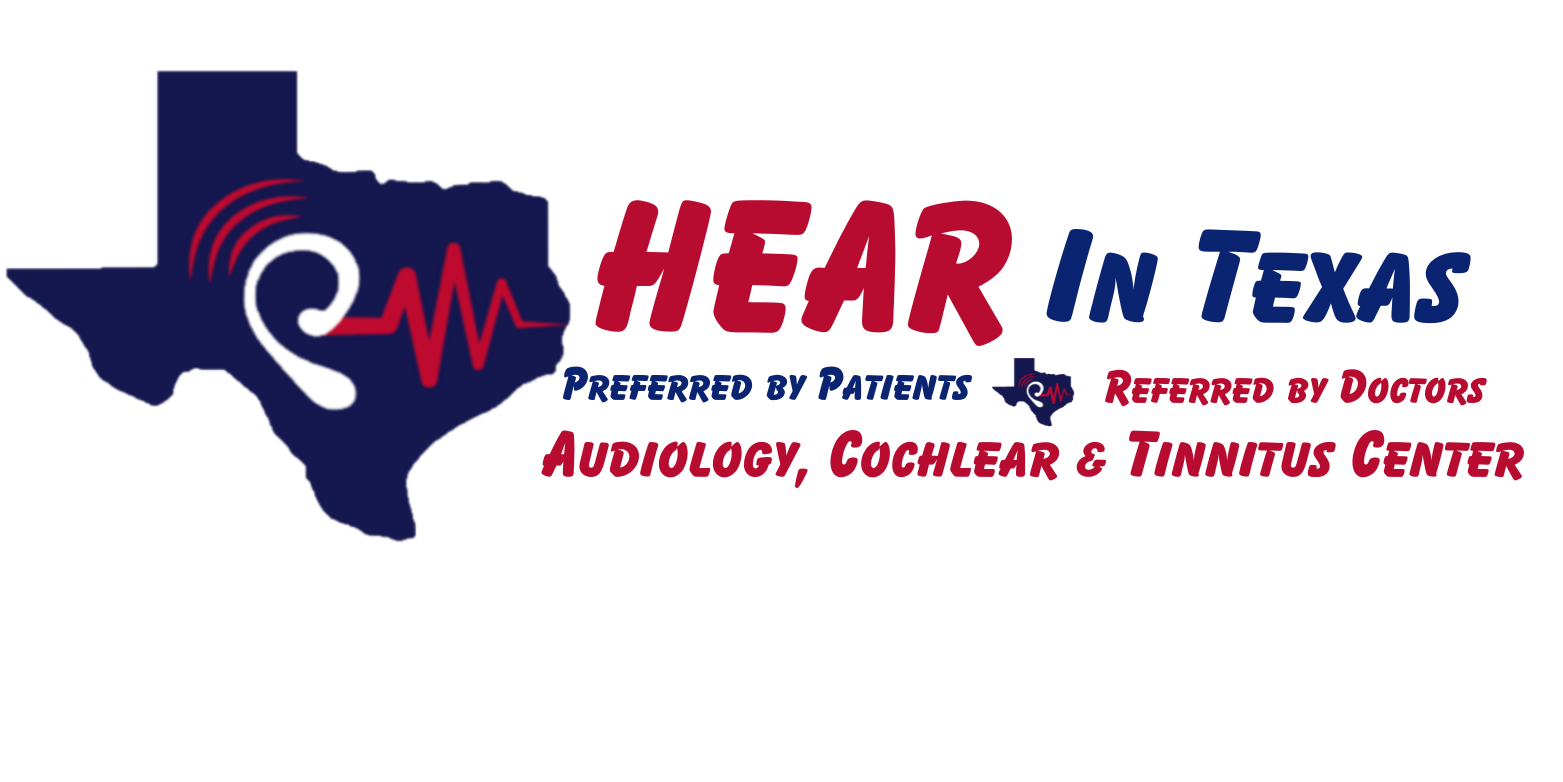HEAR IN TEXAS
Cochlear Implants

Your Cochlear Implant Doctors in New Braunfels, TX

Millions of people of every age and all around the world are affected by hearing loss. Hearing aids provide the most common solution to help restore hearing loss and enrich the quality of life of those who wear them.
There are cases when hearing aids just aren’t able to adequately address hearing loss, which is when implants provide an alternate solution to difficult hearing challenges. Both children and adults hoping to improve hearing clarity with a more natural sound turn to Dr. Sally to facilitate better communication and better hearing through the use of cochlear implants.
The main benefit provided by cochlear implants involves helping to elevate speech and language processing for children from six to twelve years old on up to adolescents and adults. Whether used only in one ear for single-sided deafness (unilateral) or in both ears (bilateral), cochlear implant technology has been around for about 50 years.
Though most people have heard about cochlear implants, few understand what cochlear implants are and how they are used. Hear in Texas is here to help answer questions and provide some guidance to those interested in learning more.
How Do Cochlear Implants Work?

A cochlear implant is an electronic device designed to compensate for the damage done to your inner ear due to age deterioration, a birth defect, or some other cause. Made of two components, a cochlear implant includes an external processor and an internal electrode, which work together to transmit sound directly to the auditory nerve.
Cochlear implant surgery involves threading the internal electrode directly into the cochlea, which is then able to receive sound signals transmitted from the external processor, bypassing your damaged auditory system. This is different from hearing aids, which send amplified or processed sounds through the auditory system.
Cochlear implants gained FDA approval in the 1970s as a means of facilitating a higher level of hearing clarity for individuals with severe to profound hearing loss. Similar to other electronic devices, like smartphones and televisions, digital technology has had a significant impact on the processing and performance capacities of hearing implants, which far exceeds the capabilities of first-generation instruments.
Cochlear implants do not cure hearing impairments. Used alongside hearing aids or to replace them, implants often provide the solution to overcome severe hearing loss challenges.

Answers To Your Cochlear Implant Questions
Q: What Is A Bi-modal Fitting?
A bi-modal fitting is when a patient wears a traditional hearing aid in one ear and a cochlear implant in the other. Advancements in digital technology and connectivity enable the two devices to communicate with each other in order to maximize hearing potential.
Q: Am I A Good Candidate For A Cochlear Implant?
Your audiologist and a surgeon will collaborate in order to determine whether or not you’re a good candidate for a cochlear implant. They will consider criteria like your level of hearing loss, your capacity to understand speech, the effectiveness of hearing aid use and your medical history.
Q: How Is Cochlear Implant Surgery Done?
The surgeon will make a small incision behind the ear in order to place the implant under the skin and insert the electrode into the inner ear. The surgical team will then run tests to measure your response to the implant before closing the incision, typically with dissolvable stitches to avoid the need for removal later.
Q: What Risks Are Involved With Cochlear Implant Surgery?
All surgical procedures that include the use of general anesthesia involve risks. For this reason, your audiologist will consult with the surgeon to determine whether there are any predictable complications to be considered before cochlear implant surgery, but most procedures include few, if any, complications, requiring only a one-day hospital stay.
Q: Will I Need Additional Surgeries To Accommodate New Technology?
The internal electrode is the only part of a cochlear implant that involves a surgical procedure.
Upgrades usually involve technological advancements that are found in the exterior processing unit, so additional surgeries are not necessary in order to upgrade your device.
Q: Can I Swim, Shower, And Remain Active With A Cochlear Implant?
One of the great benefits of cochlear implants is the fact that you can enjoy an active lifestyle with few limitations, except scuba diving and skydiving, which involve intense pressure changes. To shower or swim, most users simply remove the external processor. Likewise, they use protective headgear when engaged in aggressive physical activities.
Q: How Long After Being Implanted Are Cochlear Implants Activated?
Your audiologist will activate your cochlear implant between 2-4 weeks after surgery. Activation is a process that begins with basic soft sounds then gradually builds on your progress in order to introduce more sounds in the successive weeks and months.
Q: Are Cochlear Implants Covered By Medicare And Private Insurance?
Yes. Most private insurance companies and Medicare cover FDA-approved cochlear implants.
Helping You to Choose the Right Hearing Technology through our Partnerships with all Manufacturers
With each level of hearing loss and person that we help having their own unique set of circumstances, there is never a “one size fits all” approach.
That’s why we partner with every hearing aid manufacturer to ensure that we can always find the right solution for your unique needs.
This also means that we’re often front of the queue to get our hands on the latest hearing technology to ensure that you always have access to the latest developments.

Hearing Health Resources
Latest News

Four Ways to Optimize Your Hearing in 2025
Your hearing health is a cornerstone of your overall well-being. Staying informed about the latest advancements in audiology can help you make empowered decisions about your hearing care.
Optimizing your hearing in2025requires a comprehensive strategy that includes regular assessments, embracing new technologies, exploring advanced interventions like cochlear implants, and keeping an eye on cognitive health.
You’re in the right place – our team of experts is committed to providing you with personalized care that adapts to your evolving needs.
1.Comprehensive Hearing Tests
Understanding your auditory profile starts with acomprehensive hearing test, offering an in-depth look into your auditory capabilities.
Using state-of-the-art diagnostic equipment, these tests precisely measure the degree and type of hearing loss you might be experiencing, which serves as the foundation for crafting your tailored hearing care plan.
You can rest assured that our team of hearing care experts will guide you through your results, making sure you understand every aspect of your hearing condition so you can make proactive decisions that enhance your hearing health.
2.Advanced Hearing Aid Technology
The evolution of hearing aidsover recent years has been remarkable. These aren’t the cumbersome devices of the past; today’s hearing aids are sleek, connected, and come equipped with features such as Bluetooth streaming, rechargeable batteries, and adaptive sound environments.
Key advancements include machine learning capabilities that learn and adapt to your personal sound environments, providing seamless sound quality regardless of where you are.
This technology, partnered with expert advice and recommendations from your hearing care provider, empowers you to engage fully in social situations, keep professional connections, and enjoy personal leisure with greater ease and comfort.
3.Cochlear Implants
For individuals with a profound hearing loss, traditional hearing aids might fall short.Cochlear implantsoffer an innovative solution, bypassing damaged portions of the ear to directly stimulate the auditory nerve, offering a new auditory experience for those with severe hearing impairment.
The process includes a surgical procedure followed by extensive auditory training and rehabilitation. At Hear in Texas, you can rely on our support through each step of this journey, from the first consultation to post-implantation care, ensuring that you achieve optimal hearing results.
4.Cognitive Screenings
The connection between hearing and cognitive health is well-documented, and maintaining cognitive function is an essential part of overall health.
Regular cognitive screeningsare designed to detect early signs of cognitive decline, which hearing loss can accelerate; by providing a comprehensive understanding of how your auditory system might affect cognitive function, you can enhance your quality of life and mental well-being.
Addressing these aspects synergistically helps prevent potential secondary effects of hearing loss like social withdrawal and depression.
Start Your Hearing Health Journey
It’s never too late to start a journey, especially one as important as your hearing health!
You’re not just a patient to us; you are a valued part of our commitment to advancing hearing health.
Together, you can rely on us to help you navigate the complexities of hearing care, ensuring you enjoy the clarity and richness of sound that you deserve.
Request a callbackto get started with our team today or give us a call at(830) 360-2000.
Learn More About Cochlear Implants From Our Specialist
When hearing aids do not provide an adequate solution, individuals with severe to profound hearing loss often require cochlear implants to improve hearing or facilitate speech and language development.
Hearing implants are an important tool utilized by Hear in Texas to help improve the quality of life for those in and around New Braunfels who qualify for them.
If you, or a loved one, wants to learn more or find out whether you qualify for cochlear implants, complete and submit the adjacent form, and our specialist will contact you.
© Copyright 2025 Hear in Texas. All Rights Reserved. Designed by Topline




